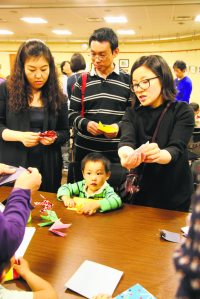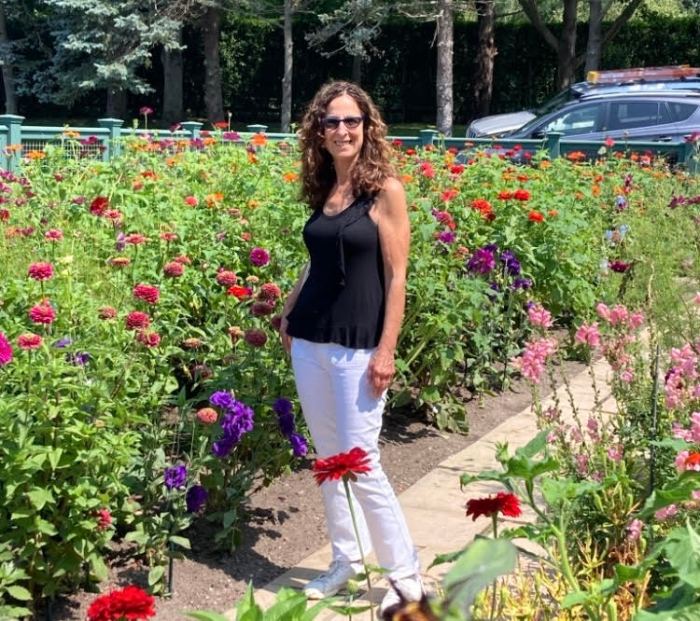I was once told that the mandatory curriculum for growing up Chinese American includes studying Chinese and playing a musical instrument. 
As first-generation Chinese Americans, many of us live with the dilemma of assimilation while keeping our own identity, which we know our children will also face someday as they grow older. To some of us, being able to speak and understand the Chinese language is essential for being Chinese. This sentiment is apparently shared by all of the Great Neck parents who bring their children to the Chinese Children’s Book Club meeting at the Manhasset Public Library every month.
The book club was started by Jie Huang, a resident of Manhasset, with help from Great Neck parents, whom she met at her son’s daycare and online. At every book club meeting, Huang and the parent volunteers read stories in Chinese, speak about Chinese traditions and teach children Chinese arts and crafts, such as origami.
Huang also picks a theme for each meeting. Since January, the book
club has had meetings about Chinese New Year, Valentine’s Day and Love, Spring and the Four Seasons, and Earth Day and Recycling.
The book club is usually open to 20 children, ages 2 to 5, and its online registration fills up within hours. On May 22, Hao Lin of Great Neck was finally able to register her son, Ryan, to attend the book club for the first time, because Huang secured the library’s community room to host 40 children and their parents.
For an hour and a half, Ryan was kept busy with stories about animals, games and coloring dinosaurs, the book club’s May theme. Bringing Ryan to attend the book club is part of Lin’s effort to make sure that Ryan will speak and write fluent Chinese when he turns 18. “To speak Chinese is definitely not enough. He should be able to tell jokes and read at least two novels by Yong Jin [an acclaimed Chinese Kung Fu novelist, who has become an icon in Chinese popular culture],” said Lin, laughing.
With the book club’s increasing popularity in the community, Huang said that her pressure of running it mostly comes from finding volunteers. She needs about 10 parents to organize and prepare for each meeting every month, and it’s a lot of work. Huang admits that she has no clear plans for the future yet, but she will try to run the book club for as long as she can.
Other parents shared different views. Qing Liu, a parent volunteer, finds the book club to be extremely meaningful. Liu is also confident that the club will run for a long time. “I see that the parents will develop friendships, and the children will build a strong bond by growing up speaking Chinese together,” he said. “This is what a community is all about.”































